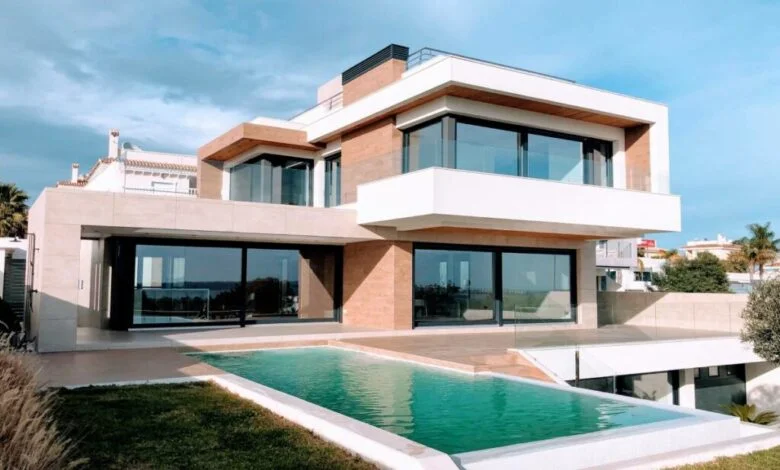The sunny Kingdom abounds with real estate offers for every taste and budget. It may seem the developers have no limits in creating the variations in housing size, choosing style of architecture and establishing prices. Houses in Spain in 2022 impress the imagination of foreign investors and potential residents. However, it is a fact that the search for an acceptable option abroad may take a long time, and inevitably has to put up with quite significant disadvantages. Thus, in ready-made houses you do not have the right to choose all the finishing materials (sometimes unscrupulous developers may use cheap materials and those of poor quality). You may get an imposed layout (not always logical) and facade (sometimes unsightly). Such situations are extremely rare, but still probability exists. In this article we will find out what are the benefits of purchasing a ready-made house in Spain and a house built by yourself.
Table of Contents
The Personal Development Of The House in Spain
The procedure of building a house in a region of Spain is not the easiest one. On the other hand, it is definitely worth the investment and effort as you will get the house of your dreams as a result.
According to the experience of Barcelona Realty Group clients, the process takes an average of 18 months. Let’s list the key stages:
- Selection and purchase of land that meets all the regulations for the construction of a house in Spain.
- Development of the basic design and detailed cost estimates.
- Obtaining the necessary permits from the local authorities.
- Payment of taxes to the mayor’s office, signing a contract with a contracting company.
- The actual construction from the utility installations and foundation to the interior finishings.
- Final inspection from the municipality when commissioning, execution of property documents Connection of electricity, water and light in the new building.
The cost of building a house in Spain
It is impossible to estimate the accurate figures at the beginning of the development. The cost sheet may change many times in the process due to the cost of necessary materials, involving specialists, and newly introduced ideas of the house owner. The amount of administrative taxes, fees for legalization of documents at the notary, and contractors’ fees will depend on the total cost of the house in the future. The bigger amount of money you invest in the development of your home, the more you will pay to the government.
The approximate cost sheet may include the following points:
- The cost of a piece of land
- The cost of the whole development estimated by a developing company
- The cost of the materials
- Engineering-geological analysis of the area
- The basic project
- The salary for the specialists
- Insurance of construction risks
- Municipal fees
- Connection of amenities
- Getting the official documents on property.
The price may vary depending on many factors. The choice of location and the level of creativity of the future house owner are on the top of list.
Buying a ready-made house in Spain
As in other European countries, the purchase of a villa in Spain requires the payment of certain taxes, besides the cost of the housing option itself. Let’s look at them in more detail:
- Tax on the transfer of ownership. Depends on the specific region and may be both fixed and dependent on certain factors. The minimum tax rate is 7%, and the maximum rarely exceeds 10%. For example, 10% of the transaction amount the buyer will have to pay during the purchase of real estate in Catalonia. In Andalusia, the amount of tax depends on the value of the housing, and if the price of the villa is not more than 400 thousand euro, the tax rate will be only 8%.
- Signing a preliminary agreement with the developer, the buyer must pay 10% VAT and stamp duty (1.5%).
- Purchase of land for further development will require the payment of taxes at a rate of 21% of the value of the object.
- The seller will be required to pay tax on changes in the cadastral value of housing.
These are all taxes that must be paid when wishing to buy a villa in Spain. If, however, later a foreigner wants to sell the property, he will have to pay tax on profits, which amounts to 3%.
The final words
Both ways of becoming a real estate owner in Spain require comprehensive investment. It is up to everyone to decide on the appropriate variant. To get an in-depth consultation on main objects of real estate in Spain, visit the website Spain-Real.Estate. Explore the world of premium property and choose the most beneficial one.






